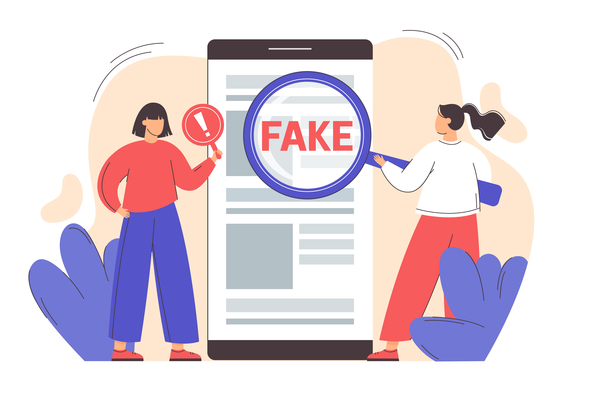There are many challenges we all face nowadays. Sorting through the vast amount of information created and shared online is one of them! In fact our students take in a huge amount of information from a wide array of sources, like TV, radio, magazines, text messages, memes, viral videos, social media, video games, advertising.

Background vector created by redgreystock - www.freepik.com
In this project students will find out if they can believe everything they find in the media. Starting with tips to be safe online, students will then explore concepts like digital footprint, cyberbullying, fake news and disinformation. The work developed throughout the project will be compiled in a fin ebook. At the partner’s schools there will be games created by the teams and related to the project’s topics.
Aims
- Reflect on the uses and influence of the media in the formation of public opinion;
- Use of security and privacy protection procedures, associated with the use of media and online communication;
- Critically interpret situations in which ethics in communication has been infringed, acting to prevent or overcome them;
- Promote social skills: collaborative work with students from other schools;
- Improve ICT skills: using digital collaborative internet tools;
- Improve language skills: communicating in English, as well as in their native language and appreciating the diversity of languages in Europe;
Key competences
- Literacy competence;
- Multilingual competence;
- Competence in Science and Technology;
- Digital competence;
- Citizenship competence;
- Competence in cultural awareness an expression competence.
(http://bit.ly/key_competences)
Expected results
- Activities are registered in the project’s Twinspace.
- Schools’ website have information about the project.
- The families of the students are informed and have access to visualize the activities of their children.
- Resume of online events (chat and/or online meetings).
- Communication between students - Forum pages used as a communication tool among students.
- Photographs showing the pupils’ contribution to the project with explanation (respecting the GDPR).
- Final product: ebook created by the students
It is also expected that students and teachers improve their skills:
- Students: ICT skills, civic skills, collaborative skills, scientific and digital literacy and active citizenship.
- Teachers: digital and collaborative skills, as well as communication in a foreign language.